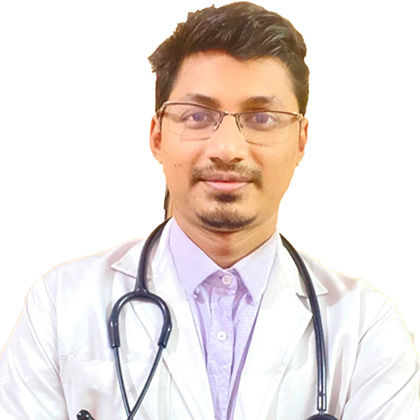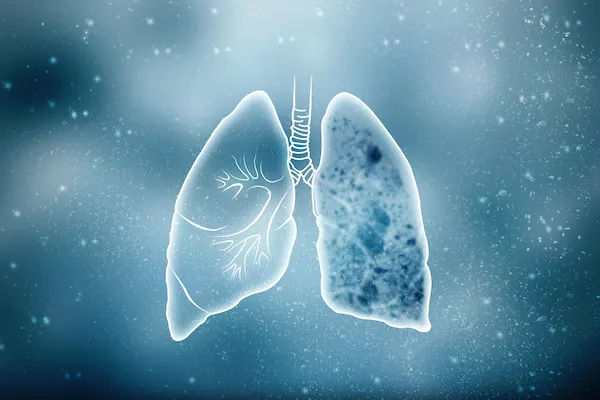Understanding Types of Tuberculosis
Gain a comprehensive understanding of the different types of Tuberculosis (TB), including latent, active, pulmonary, and extrapulmonary forms. Learn about their unique characteristics, symptoms, and the importance of accurate diagnosis for effective treatment.


Tuberculosis (TB) is a serious but treatable bacterial infection that primarily affects the lungs. However, it can also impact other parts of the body. Understanding the different types of TB is crucial for early detection, proper treatment, and preventing its spread. In this article, we’ll break down the types of TB, their symptoms, causes, and how to manage the condition effectively.
What is Tuberculosis?
Tuberculosis is caused by a bacterium called Mycobacterium tuberculosis. It spreads through the air when an infected person coughs, sneezes, or talks. While TB mainly affects the lungs (pulmonary TB), it can also infect other organs (extrapulmonary TB). Some people develop latent TB, where the bacteria remain inactive without causing symptoms.
Types of Tuberculosis
Types of tuberculosis include:
1. Pulmonary Tuberculosis (Lung TB)
This is the most common form of TB, affecting the lungs.
Symptoms:
- Persistent cough (lasting more than 3 weeks)
- Coughing up blood or mucus
- Chest pain
- Fatigue
- Fever and night sweats
- Unintentional weight loss
How It Spreads:
Pulmonary TB is contagious and spreads through airborne droplets. If untreated, it can be lifethreatening.
2. Extrapulmonary Tuberculosis (TB Outside the Lungs)
TB can spread beyond the lungs to other organs, including:
- Lymph Node TB (Tuberculous Lymphadenitis): Affects lymph nodes, causing swelling, usually in the neck.
- Bone and Joint TB (Skeletal TB): Causes back pain or joint stiffness, often affecting the spine (Pott’s disease).
- TB Meningitis: Affects the brain and spinal cord, leading to headaches, confusion, and seizures.
- Abdominal TB: Affects the intestines, liver, or kidneys, causing pain, diarrhea, or swelling.
- Genitourinary TB: Impacts the kidneys, bladder, or reproductive organs, leading to pain or blood in urine.
Symptoms:
Vary depending on the affected organ but may include localized pain, swelling, or dysfunction.
Note: Extrapulmonary TB is usually not contagious unless it involves the throat or mouth.
3. Latent TB Infection (Inactive TB)
In latent TB, the bacteria remain dormant in the body without causing symptoms. The immune system keeps the infection under control, so the person is not contagious.
Risk of Activation:
- Weak immune system (due to HIV, diabetes, or medications)
- Malnutrition or chronic illness
- Smoking or excessive alcohol use
Testing & Treatment:
A skin or blood test can detect latent TB. Treatment with antibiotics (like isoniazid) helps prevent active TB.
4. Miliary TB (Disseminated TB)
This is a severe form where TB bacteria spread through the bloodstream to multiple organs. It can affect the lungs, liver, brain, and bones.
Symptoms:
- High fever
- Weakness
- Difficulty breathing
- Enlarged liver or spleen
Who Is at Risk?
People with weakened immunity, such as those with HIV or uncontrolled diabetes.
5. Drug-Resistant TB
Some TB strains become resistant to standard antibiotics, making treatment difficult.
- Multi-drug-Resistant TB (MDRTB): Resistant to at least two key drugs (isoniazid and rifampin).
- Extensively DrugResistant TB (XDRTB): Resistant to even more medications, making it harder to treat.
Causes:
- Incomplete or incorrect TB treatment
- Skipping doses of medication
Prevention:
- Strictly following the prescribed treatment plan is crucial to prevent drug resistance.
Consult Top Specialists
How TB Affects Your Health?
Untreated TB can lead to:
- Severe lung damage
- Spread to other organs
- Lifethreatening complications (like meningitis)
- Increased risk in people with diabetes, HIV, or malnutrition
Managing Tuberculosis
Ways to manage TB includes:
1. Medical Treatment
- Active TB: Requires a 6–9 month course of antibiotics (e.g., isoniazid, rifampin).
- Latent TB: Shorter antibiotic courses to prevent progression.
- DrugResistant TB: Longer treatment (up to 2 years) with stronger medications.
Important: Never stop medication early, even if symptoms improve.
2. Lifestyle & Dietary Tips
- Eat a Balanced Diet: Include protein, vitamins (especially Vitamin D and C), and minerals to strengthen immunity.
- Avoid Smoking & Alcohol: They weaken the lungs and immune system.
- Practice Good Hygiene: Cover your mouth when coughing, and wear a mask if needed.
- Exercise Moderately: Light physical activity helps improve lung function.
3. Preventing TB Spread
- Get vaccinated (BCG vaccine, though not 100% effective).
- Ensure proper ventilation in living spaces.
- Isolate if you have active pulmonary TB until treatment makes you noncontagious.
When to See a Doctor?
Consult a doctor if you experience:
- Persistent cough (3+ weeks)
- Unexplained weight loss
- Night sweats or prolonged fever
- Swollen lymph nodes or unexplained pain
Early diagnosis and treatment are key to recovery!
Book a Consultation or Test with Apollo 24|7
If you suspect TB or need testing, Apollo 24|7 offers convenient consultations and diagnostic services. Visit Apollo 24|7 to schedule an appointment.
Final Thoughts
Tuberculosis is a serious but manageable disease. Understanding its types helps in early detection and effective treatment. With proper medical care, a healthy lifestyle, and adherence to medications, TB can be cured. Stay informed, stay safe!
Got questions? Reach out to a healthcare professional for personalized advice.
Consult Top Specialists
Consult Top Specialists

Dr. Chethan T L
General Physician/ Internal Medicine Specialist
5 Years • MBBS, MD, DNB (General Medicine)
Bengaluru
Apollo Medical Center, Marathahalli, Bengaluru

Dr. Kiran Macha
General Physician/ Internal Medicine Specialist
21 Years • MBBS,MD General Medicine
HYDERABAD
Sri Clinic, HYDERABAD
(100+ Patients)

Dr. Karan Goel
General Physician/ Internal Medicine Specialist
11 Years • MBBS, MD (Paediatrics)
Kolkata
Little Steps Clinic, Kolkata

Dr. Vishal Kumar H
General Physician/ Internal Medicine Specialist
8 Years • MBBS, master class in critical care medicine, Advanced Post Graduate Diploma in Non Invasive Cardiology, certificate course in Cardiovascular Disease & Stroke, Certificate course in Common Mental Disorder
Bengaluru
Apollo Clinic, Basavanagudi, Bengaluru

Dr. Tanzeem Shajahan
General Physician/ Internal Medicine Specialist
7 Years • MBBS, MD (General Medicine)
Bengaluru
Medwin multispeciality clinic, Bengaluru
Consult Top Specialists

Dr. Chethan T L
General Physician/ Internal Medicine Specialist
5 Years • MBBS, MD, DNB (General Medicine)
Bengaluru
Apollo Medical Center, Marathahalli, Bengaluru

Dr. Kiran Macha
General Physician/ Internal Medicine Specialist
21 Years • MBBS,MD General Medicine
HYDERABAD
Sri Clinic, HYDERABAD
(100+ Patients)

Dr. Karan Goel
General Physician/ Internal Medicine Specialist
11 Years • MBBS, MD (Paediatrics)
Kolkata
Little Steps Clinic, Kolkata

Dr. Vishal Kumar H
General Physician/ Internal Medicine Specialist
8 Years • MBBS, master class in critical care medicine, Advanced Post Graduate Diploma in Non Invasive Cardiology, certificate course in Cardiovascular Disease & Stroke, Certificate course in Common Mental Disorder
Bengaluru
Apollo Clinic, Basavanagudi, Bengaluru

Dr. Tanzeem Shajahan
General Physician/ Internal Medicine Specialist
7 Years • MBBS, MD (General Medicine)
Bengaluru
Medwin multispeciality clinic, Bengaluru
